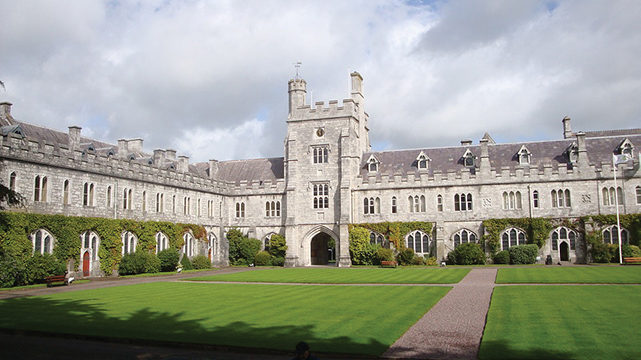
[dropcap]T[/dropcap]aoiseach Micheál Martin and British Ambassador to Ireland Paul Johnstone have spoken at a virtual conference hosted by UCC to mark the centenary of the Anglo-Irish Treaty.
The conference, which ran from October 1st to October 2nd, discussed various elements of the treaty such as the role southern unionists played in negotiations, an oral history of the delegate’s family and the portrayal of the treaty in British political cartoons.
The conference hoped to “illuminate the challenges facing the Treaty negotiations and the ways in which the negotiators sought to resolve them”.
Micheál Martin’s speech on the second day mainly revolved around the idea of ‘ethical remembrance’ when it comes to looking at Ireland’s complex past.
Mr Martin told the conference that he was proud of the attitude the state has taken, showing a “shared pride and a challenging reflection on our past”.
Mr Martin also expressed pride in the nations attitude of commemorating the past, saying that while other countries are “reverting to an inward looking and exclusionary nationalism, we have shown respect for the complexity of the past”.
The keynote speaker of day one of the conference was Professor Richard Toye of the University of Essex, who spoke about how the Treaty is viewed in Britain.
Toye said that in Britain the Treaty was not given “the significance it deserved”, and that there was no “narrative of grievance” regarding the Treaty and its implications.
Toye noted that the treaty was a “profound event” in British history, but British politicians merely presented it as an act of generosity to the Irish.
Trinity College Historian Ian d’Alton, also speaking on day one, talked about how the fate of the southern unionists was ignored almost completely during the Treaty negotiations.
According to d’Alton, southern unionists “failed to press” either David Lloyd George or Arthur Griffith for any “specific binding agreements” that would have been in their interest.
“Ultimately, it was Griffith’s sensitivity towards keeping the minority’s money in the country more than southern unionist pressure that saw some protections written into the Treaty.”
British Ambassador to Ireland Paul Johnstone also suggested that newspaper headlines involving Britain and Ireland “deeply relate to the past”.
Johnstone stated that the implications of the Treaty “still hold great resonance and still shape the political context for debates around these islands profoundly to this day”.
Alex Cunningham
Image Credit: Pixabay


